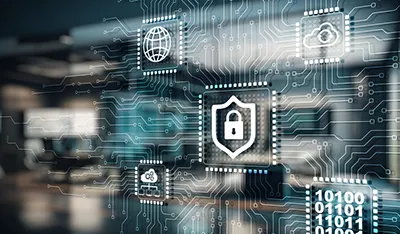How Robust Data Destruction Boosts Your Overall Cyber Security Steps
Wiki Article
The Relevance of Effective Information Destruction Practices in Safeguarding Sensitive Information and Ensuring Computer Safety
In an era where data breaches are increasingly common, the importance of effective data damage practices can not be overemphasized. Organizations face considerable threats when sensitive details is inadequately thrown away, potentially bring about unauthorized accessibility and extreme monetary consequences. Implementing durable information damage techniques not only alleviates these risks but likewise aligns with lawful compliance needs, making certain that organizations copyright their track record and foster client trust. Nonetheless, the inquiry stays: what certain strategies can be utilized to enhance these techniques, and exactly how can companies successfully integrate them right into their total cybersecurity structure?Recognizing Information Devastation
Understanding information devastation is vital in today's digital landscape, where delicate information can conveniently be endangered. Effective data devastation involves not just erasing documents however making certain that information is irretrievable through detailed approaches. This process is essential for organizations that take care of confidential client info, intellectual home, or interior records, as any kind of violation can cause serious financial and reputational consequences.
Information devastation encompasses various methods, consisting of shredding physical media, degaussing magnetic storage tools, and utilizing software-based services that overwrite data multiple times. Each approach offers a details purpose and should align with the sensitivity of the details being gotten rid of. Physical devastation is frequently favored for hard drives having very personal data, while software approaches may be adequate for much less delicate information.
In addition, sticking to sector criteria and guidelines, such as the General Information Protection Policy (GDPR) or the Wellness Insurance Policy Portability and Liability Act (HIPAA), is important for conformity and to reduce lawful dangers. Organizations needs to establish a robust data destruction policy, train workers on finest methods, and on a regular basis audit their procedures to make sure that all sensitive information is taken care of securely and properly.
Threats of Inadequate Practices
Inadequate information damage techniques subject organizations to considerable risks that can have far-ranging repercussions. When sensitive information is not correctly gotten rid of, it continues to be susceptible to unauthorized gain access to, which can cause data violations and identity theft. Such occurrences not only jeopardize the security of individuals however additionally taint the company's reputation, causing a loss of consumer trust fund and potential monetary consequences.Additionally, governing compliance is progressively rigorous in many markets. Failing to follow information devastation laws can cause hefty penalties and lawsuits versus companies. These fines can divert and stress financial resources attention from core business procedures.
Furthermore, the misuse of recurring data can lead to intellectual home burglary or corporate espionage, endangering affordable advantages (data destruction). The impact of insufficient information devastation expands past immediate financial losses; it can likewise cause lasting damages to brand stability and market setting

Organizations must acknowledge that information safety is not only about protecting against violations; it likewise incorporates the liable administration of information throughout its lifecycle. Ignoring reliable data damage methods can have disastrous ramifications, underscoring the necessity for durable the original source measures to mitigate these threats.
Best Practices for Data Devastation
Executing reliable data devastation practices is crucial for securing delicate details and preserving compliance with regulative standards. Organizations should adopt a multi-faceted approach to make certain that information is irretrievable, consequently avoiding unapproved access and prospective violations.First, information ought to be classified based upon level of sensitivity, allowing companies to use suitable damage techniques customized to the degree of threat. For digital information, utilizing software-based data-wiping tools that adhere to sector criteria can efficiently overwrite existing data. Physical damage methods, such as shredding or degaussing, are crucial for gadgets that keep delicate info, making certain total obliteration.
Establishing a clear information retention policy is crucial, describing how much time different kinds of details should be retained before damage. Normal audits of data storage systems are likewise needed to determine unneeded or outdated data requiring elimination.
In addition, training employees on the relevance of data destruction and the particular methods to comply with fosters a society of safety and security within the company. Maintaining documents of information damage processes supplies accountability and sustains conformity with outside guidelines and inner plans. By adhering to these best methods, organizations can significantly alleviate the threats linked with data exposure.
Legal and Compliance Factors To Consider

Failure to adhere to these regulations can result in extreme charges, including significant fines and reputational damage. Organizations has to carry out a robust data destruction policy that aligns with these legal frameworks and provides clear guidelines on the proper approaches of information disposal, whether physical shredding or electronic cleaning.
Moreover, maintaining paperwork of information destruction tasks is important for demonstrating compliance during audits or assessments. By prioritizing lawful and compliance considerations, organizations can enhance their data protection stance and foster trust fund with clients and stakeholders, eventually adding to an extra secure information monitoring atmosphere.
Benefits of Effective Information Destruction
Reliable data devastation methods expand beyond plain conformity; they use substantial advantages to organizations that prioritize them. By making sure that sensitive information is irretrievably destroyed, organizations reduce the danger of information breaches and the prospective economic effects associated with them. This proactive technique not just safeguards against unauthorized access however additionally improves the general dependability of the company in the eyes of stakeholders and customers.Carrying out official website durable data destruction approaches, such as physical destruction of storage space gadgets or sophisticated data wiping strategies, contributes to the fortifying of an organization's cybersecurity pose. data destruction. It lowers the chance of copyright burglary and safeguards proprietary details, thus maintaining a competitive edge in the marketplace

Conclusion
In conclusion, reliable data destruction methods are crucial for guarding sensitive information and boosting overall computer protection. Inevitably, a dedication to durable data devastation techniques cultivates a culture of responsibility, thus enhancing a company's cybersecurity stance and maintaining client trust fund.
Report this wiki page